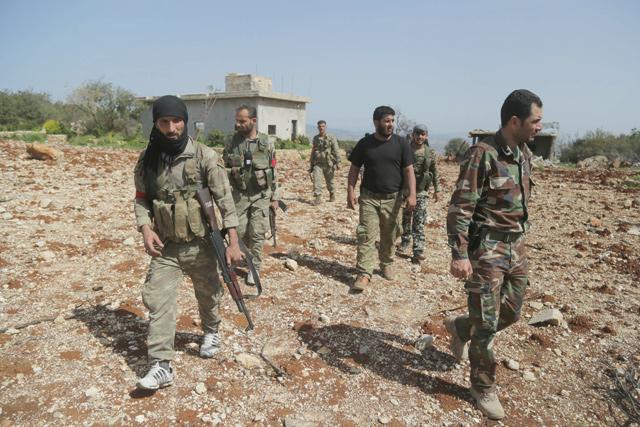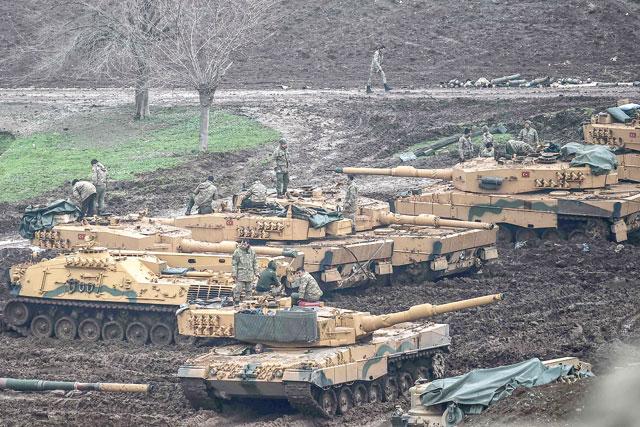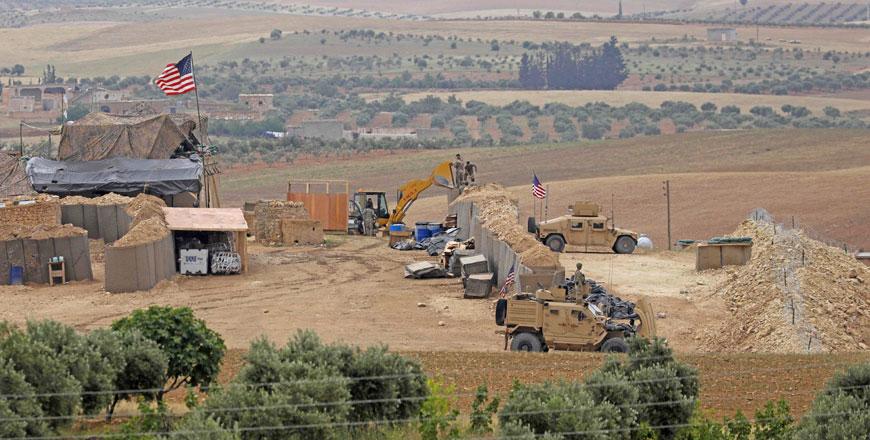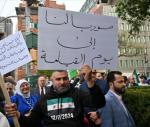You are here
Syrian Kurdish leader signals possible joint action with Iraq
By Reuters - Apr 04,2018 - Last updated at Apr 04,2018

Turkish soldiers and Free Syrian Army members conduct search works in Afrin's northwestern Raju town, following the Turkish campaign against the Kurdish YPG, on Monday (Anadolu Agency photo)
BEIRUT, Lebanon — A top Syrian Kurdish politician suggested on Wednesday that the Kurdish-led Syrian Democratic Forces (SDF) and the Iraqi government could mount joint operations against the Daesh terrorist group in the area on the border of the two countries.
Aldar Xelil warned of an extremist revival in eastern Syria, where operations by the US-backed SDF have tapered off since they diverted fighters to the northwest to fight a Turkish offensive.
"Iraq is a neighbouring state and is also suffering from Daesh terrorism," he said in a telephone interview with Reuters.
"Daesh is present in the shared area between us, and this points to the possibility of conditions arising that would pave the way for joint actions against Daesh," he said.
Xelil is co-chair of the Movement for a Democratic Society, a coalition of mainly Syrian Kurdish parties, and an architect of plans for autonomy in northern Syria.
The SDF, which the Kurdish YPG militia spearheads, has been the main partner of the US-led coalition against Daesh in Syria, helping drive the radicals out of swathes of northern and eastern Syria last year.
But its operations against Daesh have been sidetracked since Turkey, backed by allied Syrian insurgents, mounted an invasion in northwestern Syria targeting the YPG-controlled Afrin region of the northwest.
The SDF sent fighters to Afrin from other areas, and the US-led coalition has said this resulted in limited offensive operations against Daesh.
Turkey views the YPG militia as a terrorist group and a threat to its national security. Turkey and its Syrian militia allies captured Afrin town last month, leading the YPG to declare a new phase of guerrilla war in the northwest.
Xelil said the shift in tactics away from direct confrontation meant fewer fighters were needed in the northwest.
"The number has reduced a lot," he said. "The surplus number will head to the other areas to strengthen the defence of these areas," against Daesh and "any other threat".
"After Afrin, Daesh has revived and has started to expand in the region, and has benefited a lot from the vacuum," Xelil said. "This is a danger we are thinking about, and we are tying to fine the appropriate means to take measures against the expansion of Daesh," he said.
President Donald Trump agreed in a National Security Council meeting on Tuesday to keep US troops in Syria a little longer, but wants them out relatively soon, a senior administration official said on Wednesday.
Related Articles
QAMISHLI, Syria — Hundreds of miles away from family and friends facing an attack by Turkey, Kurdish and Arab forces deployed in the eastern
KIRIKHAN, Turkey — President Recep Tayyip Erdogan on Wednesday vowed to press Turkey's offensive against a Kurdish militia in Syria until "t
MANBIJ, Syria — US forces set up a new base in Manbij in northern Syria some three months ago after Turkish threats to march on the town, a


















